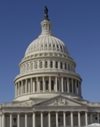
The Senate has returned to legislative business and the full Congress has its attention on the Fiscal Year 2021 budget and appropriations processes. The response to COVID-19 features prominently on the Congressional agenda.
COVID-19
The response to COVID-19 has been the subject of multiple Congressional hearings. The House Foreign Affairs Committee’s Asia Subcommittee held a hearing February 5, but Administration officials from CDC and the State Department did not attend for reasons that are not clear. The subcommittee instead heard testimony from Jennifer Nuzzo, PhD, Center for Health Security, Johns Hopkins University; Jennifer Bouey, PhD, RAND Corporation; and Ron Klain, former White House Ebola Response Coordinator, 2014-2015.
The hearing was acrimonious, with subcommittee Democrats criticizing the Trump Administration’s response to the outbreak and Republicans accusing Klain of “taking partisan shots.” Republicans also heavily criticized the Chinese government for refusing offers of assistance and being secretive. Despite the testy Foreign Affairs hearing, House Appropriations Chair Nita Lowey (D-NY) has encouraged Secretary of Health and Human Services Alex Azar to submit an emergency supplemental funding request to Congress, leaving the door open for closer cooperation between the Administration and Congress on coronavirus measures.
In related news, BARDA has established a central portal for applicants requesting funding for the development of medical countermeasures and the FDA has approved an Emergency Use Authorization for a CDC coronavirus diagnostic, allowing for distribution of the diagnostic to qualified labs nationwide.
President’s Budget
The
President’s Budget for FY 2021, released February 10 , differs dramatically from the final FY 2020 funding levels Congress enacted in the December 2019 spending deal. Here are some of the notable items
- NIH takes a $2.99 billion hit, including reductions at NIAID and the Fogarty Center of $430 million and $7 million, respectively.
- The CDC also sees cuts, totaling $708 million overall, though some individual CDC programs have proposed increases.
- CDC’s Center for Emerging and Zoonotic and Infectious Diseases and its programs are cut by $85 million.
- CDC Global Health Security, however, sees a roughly $42 million increase.
- The CDC Center for Global Health is cut, on net, by $38.6 million, including a reduction for the Malaria and Parasitic Diseases Program of $1.5 million.
- State Department and USAID global health programs are cut by $3.94 billion, with $2.09 billion cut at State and $1.0 billion cut at USAID.
- Malaria programs are reduced by $61.5 million.
- Neglected tropical disease efforts are cut by $27.5 million
Washington circles know that the President’s budget is an outline of his priorities but Congress is the final decider of what gets funded and by how much. As with many past President budget proposals, this budget is dead on arrival. Congress routinely reverses proposed cuts. ASTMH continues to advocate for reversing these proposed cuts and increasing funding for health programs at CDC, NIH, State, USAID and across the government.
Neglected Tropical Diseases
The first World NTD Day on January 30 received backing from key members of Congress, with Sen. Chris Coons (D-DE), Sen. Sherrod Brown (D-OH) and Rep. Susan Brooks (R-IN), among others, tweeting their support of NTD research and development. USAID also wrote in support of the World NTD Day effort.